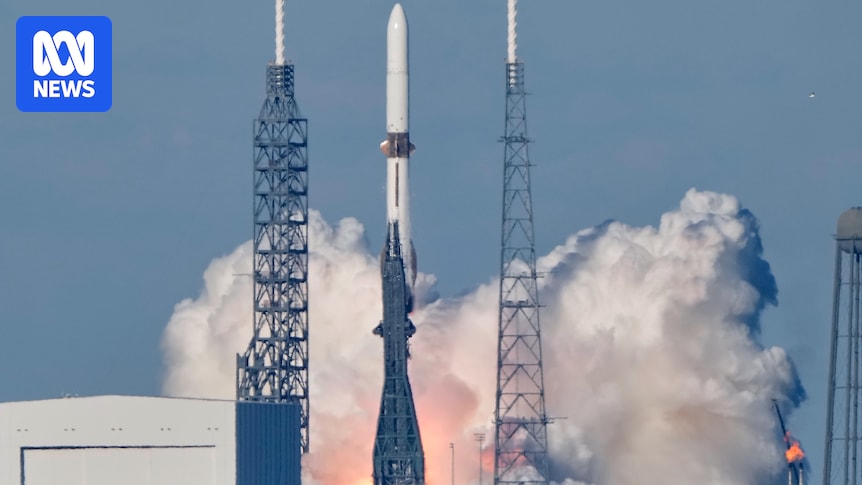
Blue Origin has successfully launched its massive New Glenn rocket, carrying a pair of NASA spacecraft destined for Mars. The 98-meter rocket soared into the afternoon sky from Cape Canaveral Space Force Station, marking a significant achievement for the space venture founded by billionaire Jeff Bezos. The mission aims to deploy twin Mars orbiters on a journey to the red planet.
The launch, which had been delayed for several days due to cloudy skies and a geomagnetic storm, finally took place amidst much anticipation. A key engineering milestone was reached when the reusable first-stage booster separated from the rocket’s upper stage shortly after launch and safely returned to Earth, landing on a barge in the Atlantic Ocean. The successful landing was met with cheers in mission control, where an ecstatic Bezos watched the proceedings.
Mission Details and Objectives
Approximately 20 minutes post-launch, confirmation came through that New Glenn’s upper stage had successfully deployed NASA’s twin Escapade spacecraft into outer space. These spacecraft, named Blue and Gold, are set to embark on a 22-month voyage to Mars, with an expected arrival in 2027. Upon reaching Mars, they will enter synchronized elliptical orbits to conduct an 11-month study of the planet’s space weather environment.
The instruments aboard Blue and Gold will focus on analyzing how solar winds—streams of high-energy charged particles from the sun—interact with Mars’ relatively weak magnetic field. This interaction is crucial for understanding the depletion of the thin Martian atmosphere, which has implications for future exploration and potential colonization efforts.
Blue Origin’s Expanding Horizons
Founded by Jeff Bezos in 2000, Blue Origin has primarily been recognized for its space tourism endeavors, notably the sub-orbital New Shepard rocket that carries wealthy passengers to the edge of space. This vehicle has also facilitated over 200 research experiments. However, the successful launch of Escapade marks a pivotal shift for Blue Origin, as it delivered its first science payload into space for NASA or any other customer.
This mission represents a significant milestone for Blue Origin in its quest to compete with Elon Musk’s SpaceX, currently the world’s leading rocket launch service. By successfully launching and deploying NASA’s spacecraft, Blue Origin is positioning itself as a formidable player in the commercial space industry.
Implications and Future Prospects
The implications of this launch extend beyond the immediate success of deploying the Escapade spacecraft. It underscores the growing role of private companies in space exploration, a field traditionally dominated by government agencies. The collaboration between NASA and Blue Origin highlights the increasing reliance on commercial partners to achieve ambitious space exploration goals.
Looking forward, Blue Origin’s success with the New Glenn rocket could pave the way for more scientific missions and potentially open new opportunities for international collaboration. As the company continues to develop its capabilities, it may also contribute to the broader goal of making space travel more accessible and sustainable.
In conclusion, the successful launch of the New Glenn rocket carrying NASA’s twin spacecraft to Mars marks a significant achievement for Blue Origin and the commercial space industry as a whole. As Blue and Gold journey towards the red planet, they carry with them the promise of new discoveries and a deeper understanding of our solar system.





